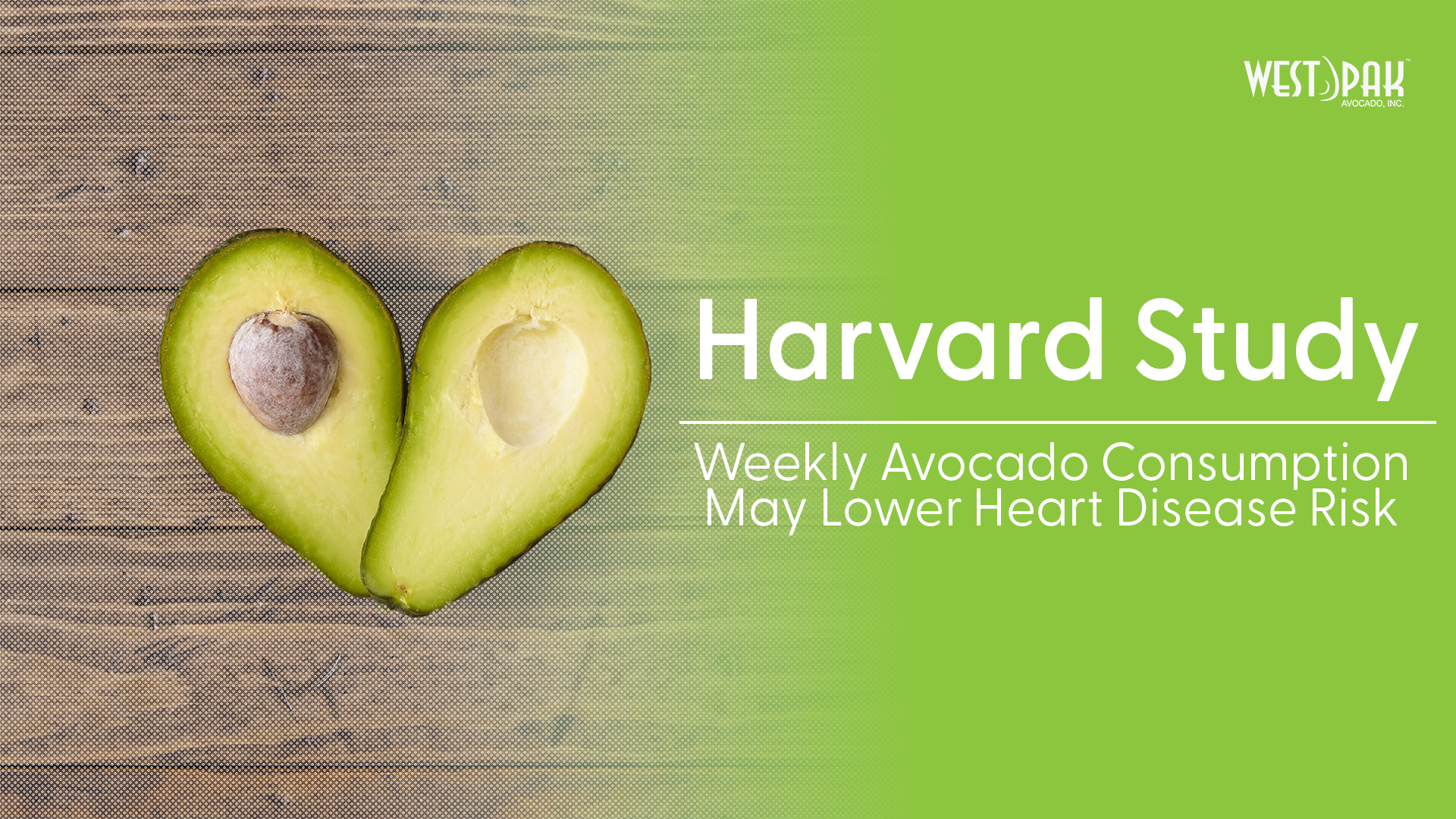
We all know that avocados taste great and make an excellent add-on to any meal. They top our burgers, add creamy goodness to our salads, and are a favorite for chip-dipping. But what you may not know is that they are an ideal replacement for otherwise fatty spreads, sauces, and even main ingredients. The avocado toast craze is the ultimate example of how consumers have changed their eating habits — in this case, swapping butter for avocado slices — for the sake of their health.
If you’re wondering if your avo-consumption is making a difference in your long-term health, the answer is most likely.
A recent article on Harvard Health stated that consuming an avocado a week may lower a person’s risk of heart disease. The report was based on the findings of a 30-year study on avocado consumption and the risk of cardiovascular disease in U.S. adults.
More than 110,000 people were involved in two long-running Harvard studies, including the Nurses’ Health Study and the Health Professionals Follow-up Study. The participants ranged in age from 30 to 75 and were considered free of heart disease and cancer when the study began in 1986. Using a series of questionnaires, at the start of the study and then every four years, the researchers assessed how much and how often people ate avocados.
Researchers documented 9,185 heart attacks and 5,290 strokes among the participants during the 30-year follow-up. When compared with people who never or rarely ate avocados, those who ate at least two servings of the green fruit each week had a 16 percent lower risk of cardiovascular disease and a 21percent lower risk of experiencing a heart attack or related issues due to coronary artery disease.
Coronary artery disease, the most common type of cardiovascular disease, is a narrowing or blockage in the blood vessels that supply the heart. Coronary artery disease accounts for approximately 610,000 deaths annually (an estimated 1 in 4 deaths) and is the leading cause of mortality in the United States. It is the third leading cause of mortality worldwide and is associated with 17.8 million deaths annually.
Study co-author Dr. Frank Hu, the Frederick J. Stare Professor of Nutrition and Epidemiology at the Harvard T.H. Chan School of Public Health (HSPH), summed up findings, “This study adds to the evidence to support the benefits of healthy fat sources like avocados to help prevent cardiovascular disease. A key take-home message is to substitute avocados for less-healthy foods such as butter, cheese, and processed meats.”
We all know avocados for their slightly nutty taste and creamy-good texture – but what many people often look past is the list of benefits, including healthy fats, fiber, and micronutrients associated with cardiovascular health:
- Half an avocado has around 6.5 grams of oleic acid. Research shows that replacing foods high in saturated fat (such as butter, cheese, and meat) with those rich in unsaturated fats (such as avocados, nuts, and seeds) helps lower blood levels of harmful LDL cholesterol, a key culprit in coronary artery disease.
- One serving of avocado provides up to 20 percent of the daily recommended dietary fiber intake, a nutrient that’s often lacking in the typical American diet. Fiber-rich diets lower cholesterol, blood pressure, and body weight and may lower heart disease risk by as much as 30 percent.
- Half an avocado provides 15 percent of the daily recommended intake of folate (vitamin B9), 10 percent of potassium, 5 percent of magnesium, and various plant-based compounds called phytochemicals. All of these vitamins, minerals, and nutrients — along with oleic acid and fiber — have been independently linked to better heart health.
The Harvard study aligns with the American Heart Association’s guidance to follow the Mediterranean diet – a dietary pattern focused on fruits, vegetables, grains, beans, fish, and other healthy foods and plant-based fats such as olive, canola, sesame, and other non-tropical oils.
“These findings are significant because a healthy dietary pattern is the cornerstone for cardiovascular health; however, it can be difficult for many Americans to achieve and adhere to healthy eating patterns,” said Cheryl Anderson, Ph.D., M.P.H., FAHA, chair of the American Heart Association’s Council on Epidemiology and Prevention.
“We desperately need strategies to improve intake of AHA-recommended healthy diets — such as the Mediterranean diet — that are rich in vegetables and fruits,” said Anderson. She is a professor and dean of the Herbert Wertheim School of Public Health and Human Longevity Science at the University of California San Diego. “Although no one food is the solution to routinely eating a healthy diet, this study is evidence that avocados have possible health benefits. This is promising because it is a food item that is popular, accessible, desirable, and easy to include in meals eaten by many Americans at home and in restaurants.”
To make it easier for consumers to spot heart-healthy foods and beverages in the grocery store, the American Heart Association implemented Heart-Check, a rigorous certification program that complies with 10 different health claims in 13 different food categories. With the certification, products must meet nutrition requirements based on science recommendations from American Heart Association statements and comply with F.D.A. and/or USDA regulations for making a coronary heart disease claim. Products that meet all of the certification requirements can display the coveted Heart-Check mark.
According to the American Heart Association, over 75% of consumers recognize the Heart-Check symbol and express that they are more likely to purchase foods that feature the certification mark.
West Pak Avocado earned the American Heart Association’s Heart-Check mark designation in 2017 by meeting the strict dietary criteria for healthy foods. Today, this Heart-Check mark is prominently displayed on all West Pak Avocado packaging, merchandising and marketing materials, and product support material used in the United States.






